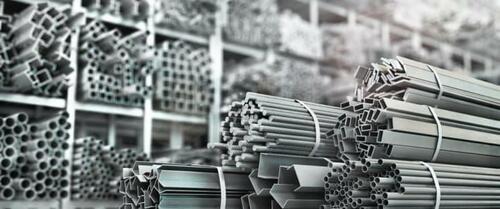Recession Fears Could Derail The Global Metals Boom
By Ag Metal Miner via OilPrice.com
Mexico’s steel metal market recently saw a slowdown, leading experts to believe that Mexico’s industrial metal market may soon turn bearish. Flat steel prices, along with long steel prices, have been dropping over the past several weeks. In fact, Mexico’s steel prices have been in steady decline since April. However, in mid-May, prices dropped sharply and remain bearish. This is a dramatic change from March of 2022, when Mexico’s steel metal market was following an unquestionably-bullish path.m
Experts note that the Mexican metals industry has not seen such erratic fluctuations since the end of 2020. Recently, Banxico, one of Mexico’s benchmark banks, increased national interest rates. Like the US, this was an attempt to stifle dramatic inflation rates. Indeed, steep inflation has plagued the US and Mexican metal markets all year. With a looming recession in the US, increasing steel exports from Mexico may not be possible.
Fear of a US Recession Grows While Industrial Metal Prices Fall
While supply chain issues remain a problem around the globe, metal prices in the US are being impacted by a looming recession. In fact, The Bloomberg Commodity Index fell about 10% in the past week alone. And though many experts speculate that the US could avoid a recession, investors and buyers remain skeptical. Tin and copper have hit their lowest point in years, and aluminum prices are quickly following suit.
With commodities, in particular, experts have reason to believe that these downturns will continue, putting the immediate future of metal distributors and metal producers in question. Of course, the war in Ukraine has also impacted commodity prices, supply, and distribution. In recent months, the demand for coal has gone back up, and prices have increased, especially in Europe.
All in all, one thing remains certain: big changes are coming to the global commodities market.
China Cutting Down Industrial Metal Manufacturing
With metals hitting bearish numbers not seen since the Great Recession of 2008, manufacturing and exports from countries like China are being cut back. To add injury to insult, sanctions on Russia for the invasion of Ukraine continue to impact global metal supply. As one might expect, construction and industrial equipment are the two markets most heavily impacted by the change.
Indeed, some experts speculate that this could severely stagger money spent on automobiles and the use of metal in heavy construction. After all, a looming recession means less spending, both by businesses and consumers. If it does happen, markets will need to adjust rapidly.
Europe and India’s Metal Markets Slide Along with the US’
Several major global metal exchanges are sliding alongside the US’. In Europe, for instance, metal distributors are stuck with massive amounts of inventory they can’t unload. Upon reaching a high point in the European metals market in March, European distributors purchased at an alarming rate. It was a logical move at the time, as many feared prices would continue to climb. Now with a possible global recession on the horizon, supply chains are sitting on inventory they can’t turn around.
In India, where metal stocks have slid by as much as 30%, industrial metal commodities are not fairing much better. India’s central bank system has taken actions similar to Mexico and the US, trying to stifle inflation along with unprecedented commodity prices. Clearly, even the world’s largest democracy is wary of the impacts of sliding metal prices.
Even so, the question remains: will the recession hit in 2022? Moreover, perhaps bracing for a global recession doing just as much damage?
Tyler Durden
Sat, 07/02/2022 – 09:20
via ZeroHedge News https://ift.tt/TwSOYZR Tyler Durden
